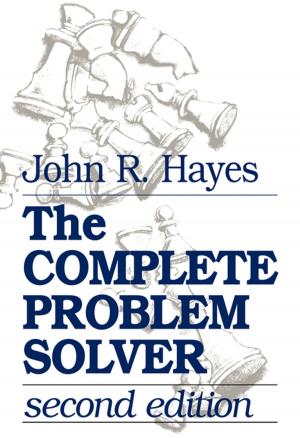| Author: | Aimée M. Surprenant, Ian Neath | ISBN: | 9781136950636 |
| Publisher: | Taylor and Francis | Publication: | March 7, 2013 |
| Imprint: | Psychology Press | Language: | English |
| Author: | Aimée M. Surprenant, Ian Neath |
| ISBN: | 9781136950636 |
| Publisher: | Taylor and Francis |
| Publication: | March 7, 2013 |
| Imprint: | Psychology Press |
| Language: | English |
In over 100 years of scientific research on human memory, and nearly 50 years after the so-called cognitive revolution, we have nothing that really constitutes a widely accepted and frequently cited law of memory, and perhaps only one generally accepted principle. The purpose of this monograph is to begin to rectify this situation by proposing 7 principles of human memory that apply to all memory. These principles are qualitative statements of empirical regularities that can serve as intermediary explanations and which follow from viewing memory as a function. They apply to all types of information, to all memory systems, and to all time scales. The principles highlight important gaps in our knowledge, challenge existing organizational views of memory, and suggest important new lines of research.
This volume is intended for people in the field of memory (from advanced undergraduates to seasoned researchers), although it will be of interest to those who would like a comprehensive overview of the fundamental regularities in cognitive functioning.
In over 100 years of scientific research on human memory, and nearly 50 years after the so-called cognitive revolution, we have nothing that really constitutes a widely accepted and frequently cited law of memory, and perhaps only one generally accepted principle. The purpose of this monograph is to begin to rectify this situation by proposing 7 principles of human memory that apply to all memory. These principles are qualitative statements of empirical regularities that can serve as intermediary explanations and which follow from viewing memory as a function. They apply to all types of information, to all memory systems, and to all time scales. The principles highlight important gaps in our knowledge, challenge existing organizational views of memory, and suggest important new lines of research.
This volume is intended for people in the field of memory (from advanced undergraduates to seasoned researchers), although it will be of interest to those who would like a comprehensive overview of the fundamental regularities in cognitive functioning.















